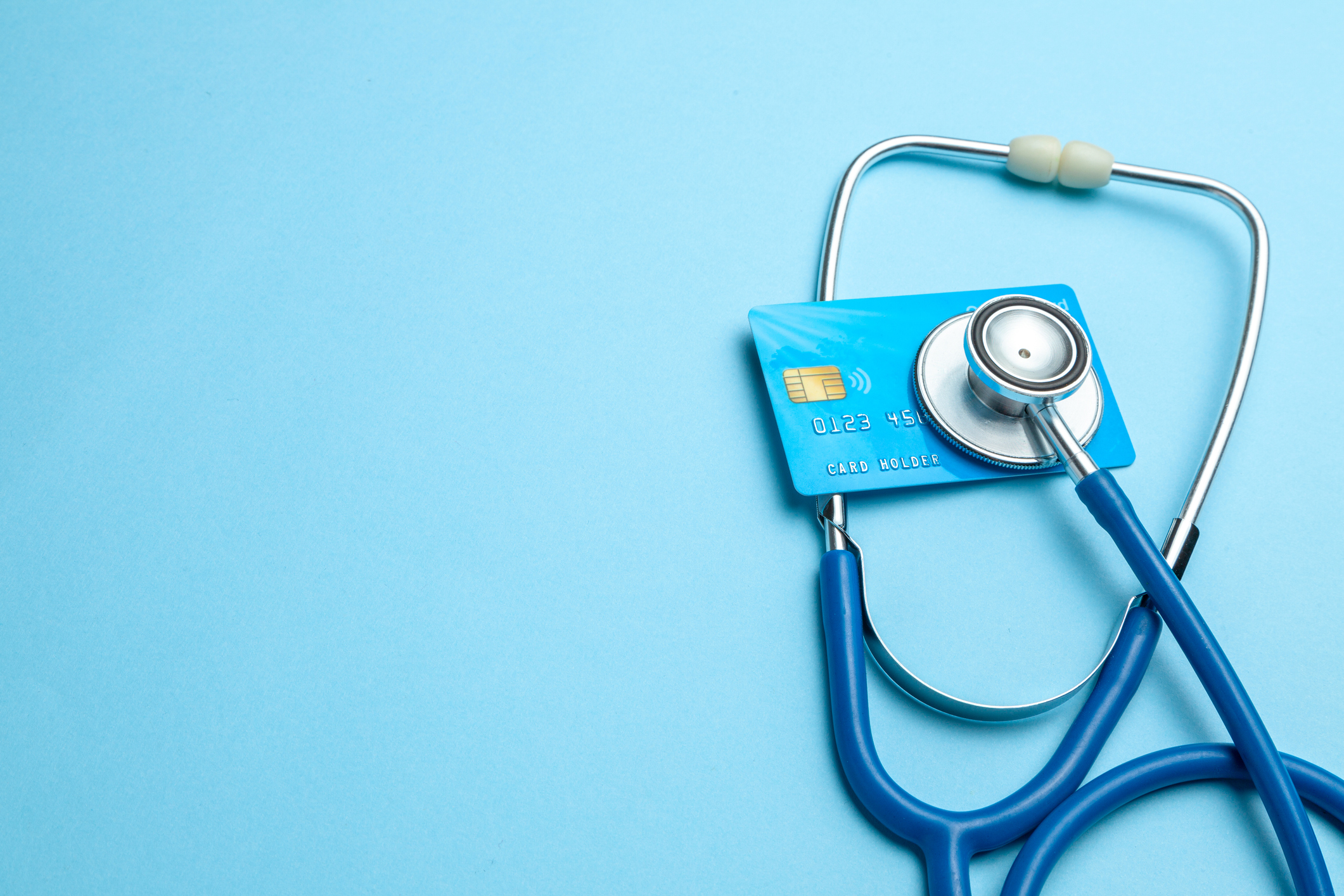Recent studies show that Americans currently owe over $220 billion in medical debt.
Unfortunately, with the debt typically accruing due to unpredictable medical needs, and Americans already feeling the weight of increased housing, food, utility, and insurance costs, many cannot pay.
This leaves many wondering, “Can credit cards or personal loans help pay off medical debt?” While the simple answer is “yes,” there’s more you need to know before you choose this route.
Key Takeaways
|
What Is It and Why Is It So Hard to Pay Off?
Medical debt occurs in the form of bills related to healthcare that your health insurance plan does not cover. Whether you don’t currently have a policy or some of your treatment was not covered, the bill you owe to the health system is called medical debt.
The challenge of achieving financial freedom from the burden of health care debt is that it is often an unexpected expense that adds up very quickly. Even with an insurance plan in place, coinsurance, copayments, deductibles, and non-covered costs can add up to thousands of dollars. If not paid off, the debt will move through the billing and collections cycle, making it even more challenging to locate and negotiate.
Also Read: Credible Vs LendingTree – Which Personal Loan is Best?
Helpful budgeting Calculators:
Check out our free financial calculator landing page for tools to help you plan effectively, evaluate your options, and make informed money decisions backed by real data, including these:
What Happens to Medical Debt After Death?
In the unfortunate event that a person dies while still owing medical debt, the deceased person’s estate becomes responsible for the debt. In some cases, assets, property, or life insurance policies will cover the cost of the debt. However, if there are insufficient funds to pay off the debt, a surviving spouse or children may be responsible for paying it.
Rules governing when and how a creditor can attempt to collect a debt after a death vary by state. However, in most cases, the burden of medical debt remains and must be paid off.
How Medical Debt Affects Your Credit Score
Until 2022, creditors could report medical debt to the three credit bureaus, which would directly affect consumer credit scores. However, an amendment to the Fair Credit Reporting Act (FCRA) prohibited the reporting of most medical debt to the credit bureaus.
This meant that, in most cases, medical debt did not appear on your credit reports or negatively affect your score.
Unfortunately, recent changes may undo this protection. This means your medical debt and credit score can affect each other once again.
The Latest Credit-Reporting Rule Changes
Credit-reporting changes in 2022 dictated that health systems and debt collectors could no longer report medical debt paid within 120 days of the first billing date, for amounts under $500, or that was under consumer dispute. Some states even strengthened the rules with additional standards against reporting.
However, the Federal Register reports that recent credit-reporting rule changes by the Consumer Financial Protection Bureau render state laws prohibiting the reporting of medical debt to credit reporting agencies void, and move to allow medical debtors to report directly to credit bureaus.
Can Medical Debt Garnish Wages or Bank Accounts?
The simple answer is “yes”: creditors can sue to garnish wages or bank accounts to collect on medical debt. However, the process to do so is extensive, and the laws governing garnishment vary by state.
If a creditor holds medical debt you’ve not paid, they can file a lawsuit. You will then receive a summons and have a chance to respond to the lawsuit. If you fail to respond or the court sides with the creditor, they can file for a wage garnishment or a bank account levy until the debt is extinguished.
Federal benefits, such as Social Security, cannot be garnished for medical debt. However, if you have a bank account that is subject to a bank levy, you should ensure that your federal benefits are deposited into a separate account to avoid fund freezing.
Does Bankruptcy Clear Medical Debt?
Yes, both Chapter 7 and Chapter 13 filings can clear most or all medical debt. Be sure to consult a licensed and experienced bankruptcy attorney before choosing to clear your debt in this manner.
Can Credit Cards or Personal Loans Help Pay Off Medical Debt?
While you can use credit cards or personal loans to pay off medical debt, it’s crucial to understand how it will affect you. Choosing to pay off your debt in this manner converts your medical debt into consumer debt, which comes with some benefits and drawbacks.
First and foremost, paying off your medical bills with a credit card or personal loan can cost you more money in the long run. One reason is that medical bills are sometimes negotiable, something you won’t find with credit or loans.
Another is interest rates and annual fees, which can add up quickly if you don’t pay the debt on time.
On the flip side, there are some benefits to using a credit card or a personal loan to pay off your medical debt.
If you’re sure you’d like to use credit, avoid high interest rates and fees by seeking a low or 0% intro interest rate card and paying it off as quickly as possible. You can also consider taking advantage of points programs offered by rewards cards or premium card options.
Personal loans and the best debt consolidation loans are also solid options for paying down medical debt. For starters, an unsecured loan is a convenient way to consolidate all of your debt across multiple organizations quickly. Either of these options can make managing your monthly payments much more feasible.
Related Article: How Can I Lower My Credit-Card Interest Rate?
How to Prevent It From Piling Up Again
Medical debt can pile up quickly, especially if you experience an unexpected illness or condition. Fortunately, with a bit of preparation, you can stay on top of your medical bills and prevent medical debt from piling up.
- First, prioritize your health. An ounce of prevention is worth a pound of cure, and costs a whole lot less! Eating healthy, getting ample exercise, and carefully managing chronic conditions contribute significantly to your health. Also, always take advantage of preventative medical care coverage provided by your insurance plan.
- Next, carefully select your health insurance. Be sure to choose a plan that works with your preferred providers and covers your needs and lifestyle. While it may cost more upfront, quality health insurance goes a long way to preventing unexpected medical expenses.
- Moving forward, always review medical bills carefully. Ask for an itemized bill if something is unclear and request financial assistance or a payment plan if necessary. Additionally, if you’re able to pay off the debt quickly, ask about negotiating the total cost. While not required, some organizations offer debt relief for prompt payment.
- If you currently have medical debt, be wary of scams and schemes designed to trick you into paying for what or to whom you don’t owe. Learn more in our news release, Medical Debt in America: The True Cost of Getting Sick.
Related Article: Compound Interest Vs. Simple Interest: What You Need to Know

